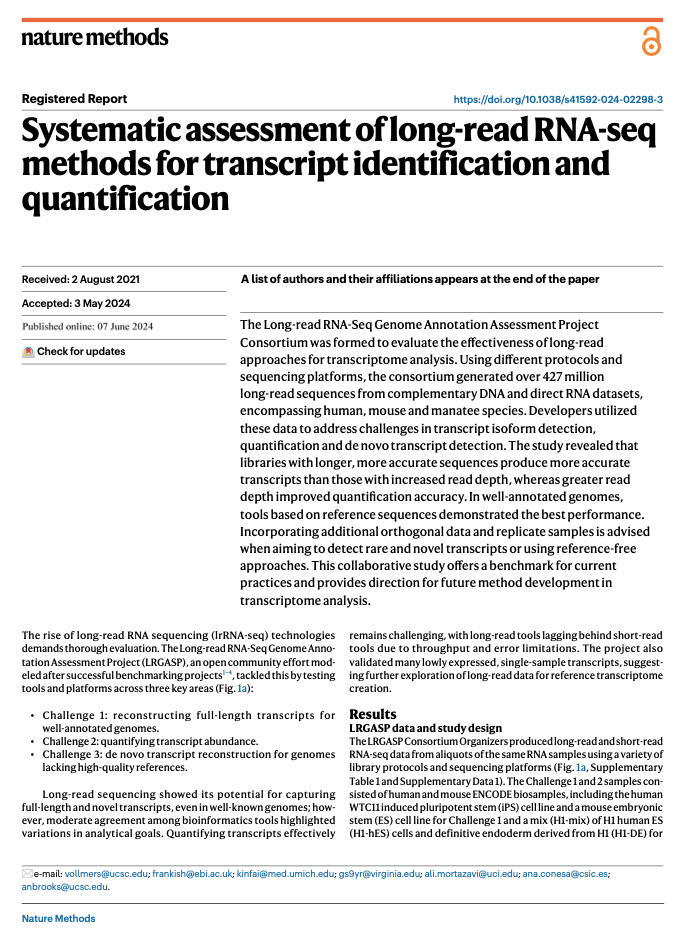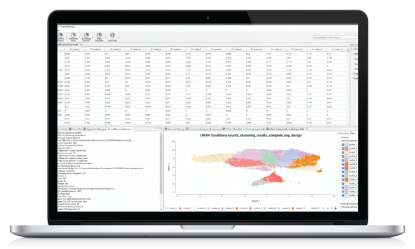We are pleased to announce the publication of a comprehensive study in Nature Methods: Systematic Assessment of Long-read RNA-seq Methods for Transcript Identification and Quantification.
This research provides an in-depth evaluation of multiple long-read RNA sequencing technologies, comparing their effectiveness in transcript identification and quantification.
BioBam participation in this research highlights its expertise in long-read sequencing technologies and its commitment to advancing cutting-edge academic research. This research is a significant contribution to the field and sets a benchmark for current practices and guides future developments in transcriptome analysis.
The study systematically assessed long-read RNA sequencing techniques using data from diverse human, mouse, and manatee samples. The research highlights several critical findings. Longer, more accurate reads significantly improve the accuracy of transcript identification, particularly for detecting complex and rare transcripts that shorter reads might miss. Deeper sequencing enhances the quantification of transcripts, providing a more accurate measure of transcript abundance. Reference-based tools perform best for well-annotated genomes, demonstrating higher accuracy in identifying known transcripts. Additionally, incorporating extra data and biological replicates improves the detection of rare transcripts, enhancing the robustness of the analysis.
The study’s comprehensive evaluation provides valuable insights for researchers and practitioners in the field, offering guidelines for choosing the most effective methods for transcript identification and quantification. It also highlights the importance of using long-read sequencing technologies to achieve higher accuracy and deeper insights into transcriptomics.
For more details, read the full article here.
About the Author
 Stefan Götz
Stefan GötzStefan started his career in computer science and developed a keen interest in biomedical applications. He transitioned from biomedical informatics to computational biology, specializing in functional genomics and sequence analysis. After completing a Ph.D. in bioinformatics, Stefan chose to pursue a non-academic path and became an entrepreneur. In 2011, he founded BioBam, a bioinformatics company aimed at advancing genomics research to enhance human health, food safety, and environmental quality.
As the CEO of BioBam, Stefan is responsible for various aspects of the company's growth, such as business strategy, product management, team leadership, and research and innovation.




